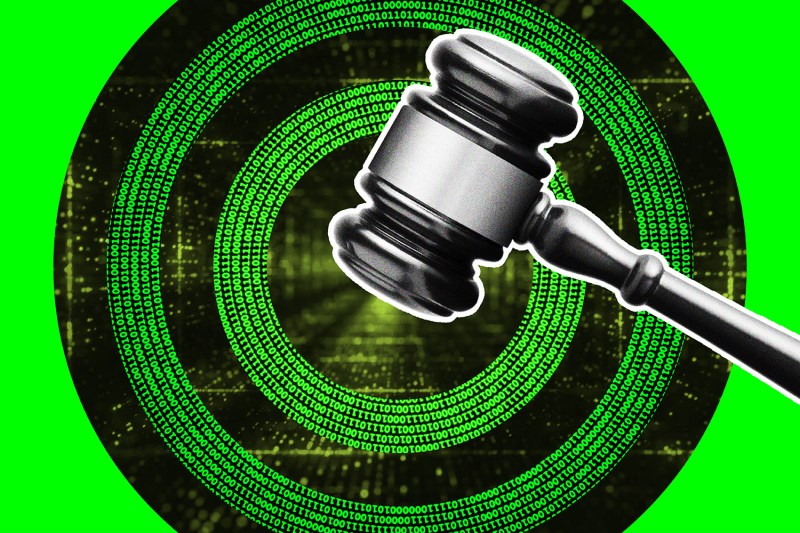Why It’s So Hard to Regulate AI
The world may need new rulebooks for the rapidly evolving technology.
It has always been difficult for the world to regulate technology—especially technology that moves fast. But, as FP’s Rishi Iyengar wrote in May, artificial intelligence, “with its immense potential to transform economies and societies—not necessarily for the better—presents an unprecedented challenge.”
It has always been difficult for the world to regulate technology—especially technology that moves fast. But, as FP’s Rishi Iyengar wrote in May, artificial intelligence, “with its immense potential to transform economies and societies—not necessarily for the better—presents an unprecedented challenge.”
This edition of Flash Points examines how global powers are approaching that challenge. The essays below consider what AI governance should look like, how it might affect democracy, and the potential pitfalls of conventional approaches to regulation.
People look at Pangu AI weather models during the World Artificial Intelligence Conference in Shanghai, China, on July 7.Wang Zhao/AFP via Getty Images
What the U.S. Can Learn From China About Regulating AI
Over the past two years, China has enacted some of the world’s earliest and most sophisticated rules for AI, Matt Sheehan writes.
Matt Chase illustration for Foreign Policy
The AI Regulation Paradox
Regulating artificial intelligence to protect U.S. democracy could end up jeopardizing democracy abroad, Bhaskar Chakravorti writes.
U.S. President Joe Biden takes part in an event discussing the opportunities and risks of artificial intelligence in San Francisco on June 20. ANDREW CABALLERO-REYNOLDS/AFP via Getty Images
The Global Race to Regulate AI
The intelligence may be artificial, but the regulation is real—or might be, FP’s Rishi Iyengar reports.
An attendee tries out a virtual-reality Meta Oculus Quest 2 headset during the Mobile World Congress, focused on artificial intelligence and other technology, in Barcelona, Spain, on March 3, 2022. Joan Cros/NurPhoto via Getty Images
Europe’s Tech Curbs Are a Double-Edged Sword
The continent’s eagerness to regulate global tech companies could backfire on its own, Jeremiah Johnson writes.
Then-OpenAI CEO Sam Altman greets committee chairman Sen. Richard Blumenthal on arriving for testimony before the Senate Judiciary Subcommittee on Privacy, Technology, and the Law on Capitol Hill in Washington on May 16.Win McNamee/Getty Images
Build AI by the People, for the People
Washington needs to take AI investment out of the hands of private companies, Bruce Schneier and Nathan E. Sanders write.
Chloe Hadavas is an associate editor at Foreign Policy. Twitter: @Hadavas
More from Foreign Policy


The World Won’t Be the Same After the Israel-Hamas War
The Middle East’s latest war will have widespread geopolitical effects.


The Inevitable Fall of Putin’s New Russian Empire
What history tells us about collapsed empires trying to restore their former possessions.


With Two Wars Raging, China Tests America in Asia
Beijing knows that Washington can ill afford a third geopolitical crisis.


The U.S. Is Preparing an Outsourced Invasion of Haiti
Repeated interventions have done nothing to aid Haitians.







Join the Conversation
Commenting on this and other recent articles is just one benefit of a Foreign Policy subscription.
Already a subscriber?
Log In.
Subscribe
Subscribe
View Comments
Join the Conversation
Join the conversation on this and other recent Foreign Policy articles when you subscribe now.
Subscribe
Subscribe
Not your account?
Log out
View Comments
Join the Conversation
Please follow our comment guidelines, stay on topic, and be civil, courteous, and respectful of others’ beliefs.
Change your username |
Log out
Change your username:
CANCEL
Confirm your username to get started.
The default username below has been generated using the first name and last initial on your FP subscriber account. Usernames may be updated at any time and must not contain inappropriate or offensive language.